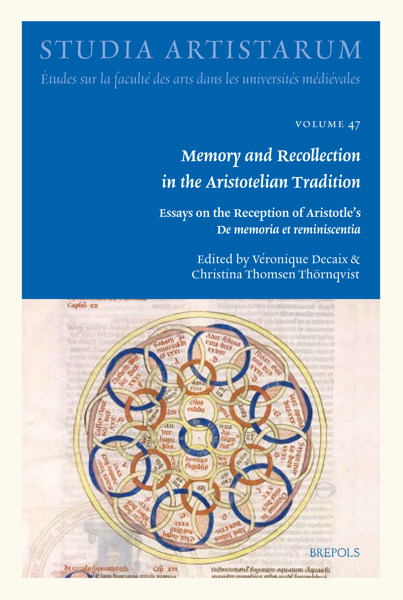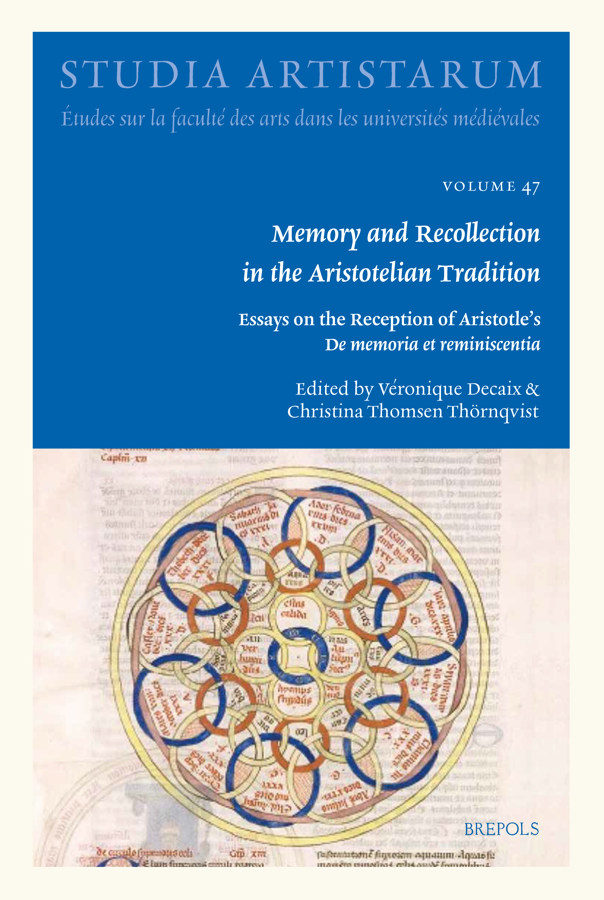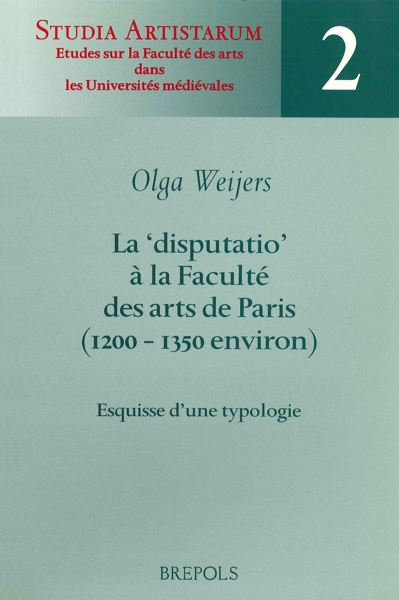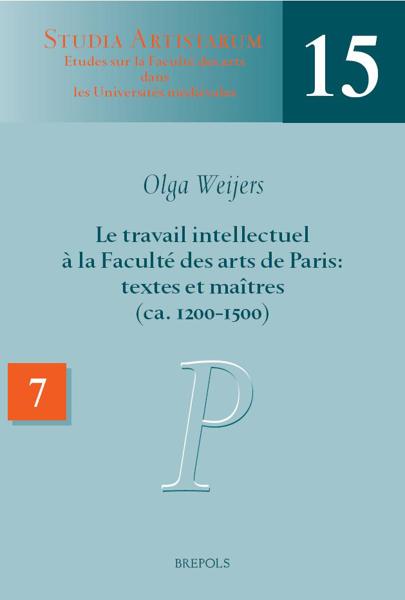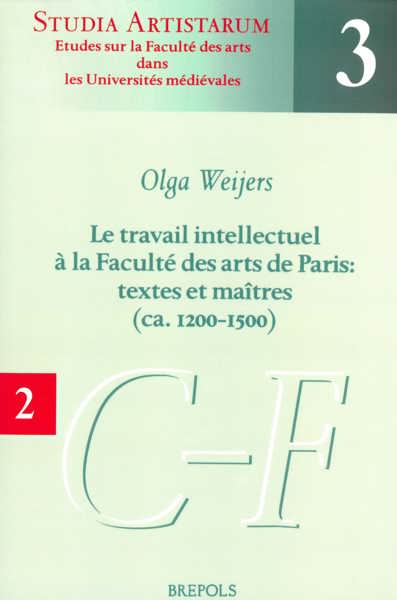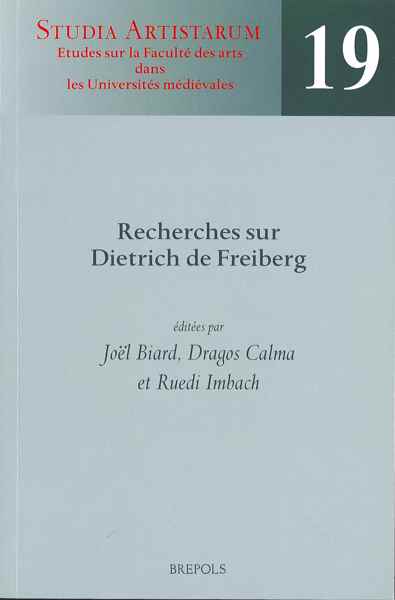
Memory and Recollection in the Aristotelian Tradition
Essays on the Reception of Aristotle’s De memoria et reminiscentia
Véronique Decaix, Christina Thomsen Thörnqvist (eds)
- Pages: 266 p.
- Size:156 x 234 mm
- Language(s):English, French
- Publication Year:2021
- € 80,00 EXCL. VAT RETAIL PRICE
- ISBN: 978-2-503-59312-8
- Hardback
- Available
- € 80,00 EXCL. VAT RETAIL PRICE
- ISBN: 978-2-503-59313-5
- E-book
- Available
Aristotle’s De memoria et reminiscentia (“On Memory and Recollection”) is the oldest surviving systematic study of the nature of human memory.
“(…) the book highly recommends itself as an exemplary piece of scholarship.” (Colin C. Smith, in The Medieval Review, 17/03/2023)
Véronique Decaix is associate professor in Medieval Philosophy at the University Paris 1 Panthéon-Sorbonne. Her research focus is on psychology during the Middle Ages, more precisely on intentionality in cognitive processes such as sensation, memory, dream and intellection. She has recently published a monograph on Dietrich of Freiberg (Vrin, 2021).
Christina Thomsen Thörnqvist is professor of Latin (University of Gothenburg) and specializes on the Latin reception of Aristotle’s syllogistic theory and his natural philosophy. She has recently led a major research project on the Greek, Latin and Arabic reception of Aristotle’s Parva naturalia (Representation and Reality 2013-2019) and is now heading a project on the medieval reception of Aristotle's logic (Filling the Gap: Medieval Aristotelian Logic 1240–1360, 2019–2024).
Aristotle’s De memoria et reminiscentia (“On Memory and Recollection”) is the oldest surviving systematic study of the nature of human memory. Forming part of Aristotle’s other minor writings on psychology that were intended as a supplement to his De anima (“On the Soul”) and known under the collective title Parva naturalia, Aristotle’s De memoria et reminiscentia gave rise to a vast number of commentaries in the Middle Ages. The present volume offers new knowledge on the medieval understanding of Aristotle’s theories on memory and recollection across the linguistic traditions including the Byzantine Greek, Latin and Arabic reception.
Christina Thomsen Thörnqvist, Preface
Véronique Decaix, Introduction
Mika Perälä, Aristotle’s Three Questions about Memory
Alexandra Michalewski, Writing in the Soul. On Some Aspects of Recollection in Plotinus
Tommaso Alpina, Retaining, Remembering, Recollecting. Avicenna’s Account of Memory and Its Sources
Carla Di Martino, Mémoire, représentation et signification chez Averroès. Une proposition de lecture
Joël Chandelier, Memory, Avicenna and the Western Medical Tradition
Julie Brumberg-Chaumont, The First Latin Reception of the De memoria et reminiscentia: Memory and Recollection as Apprehensive Faculties or as Moving Faculties?
Véronique Decaix, What Is Memory of? Albert the Great on the Proper Object of Memory
Sten Ebbesen, Memory Is of the Past
Christina Thomsen Thörnqvist, Aristotle and His Early Latin Commentators on Memory and Motion in Sleep
Dafni Argyri, The Byzantine Reception of Aristotle’s De memoria
Bibliography
Index
